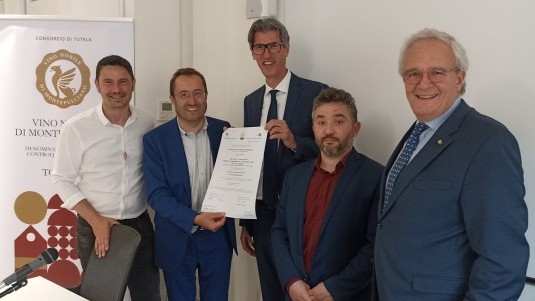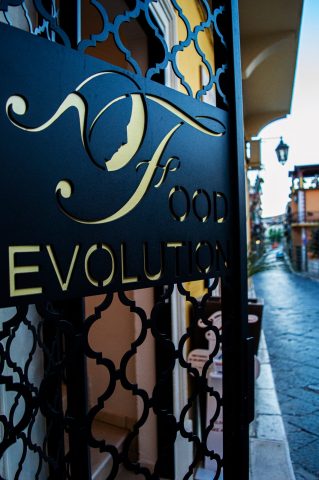Vino Nobile di Montepulciano: first Italian DOCG to receive sustainability label according to Equalitas

Vino Nobile di Montepulciano is the first Italian appellation to bear the Equalitas sustainability label after a three-year journey.
Still a pioneer, the Consortium of Italy's first DOCG, which, thanks to the certification mark according to the Equalitas standard, is the first Italian wine district in this direction. Riccardo Ricci Curbastro, President Equalitas: "An important signal for the entire system of wine appellations in our country." Andrea Rossi, President of the Consorzio del Vino Nobile di Montepulciano: "A strategic and educational path to new managerial structures shared with our companies."
It is now official: Vino Nobile di Montepulciano is the first Italian denomination to have received the sustainability certification mark according to the Equalitas standard. The news was announced at the headquarters of Federdoc, among the partners in the journey, during the presentation of the milestone, which concerned the Tuscan appellation as the first in Italy in this sense. "The goal that we set ourselves from the beginning of the journey," says Andrea Rossi, president of the Consorzio del Vino Nobile di Montepulciano, "we immediately considered it strategic because in order to achieve it we favored 'a cultural change' in our companies with the aim of progressively modifying the production and organizational profile with production methods and techniques that are more respectful of the environment and the landscape, but above all in the direction of ensuring a high standard of ethical, social and economic values, which will strengthen the cohesion between our businesses and between them and the territory thus looking at an environmental, economic and ethical-social dimension where respect for collective values and rights plays a central role in this process."
"That given by the Consorzio del Vino Nobile di Montepulciano is an important signal for the entire sector of our country's wine appellations," stresses Riccardo Ricci Curbastro, President of Equalitas, "and comes as confirmation that the path taken by Federdoc has in the Equalitas standard a reference point of absolute value. The journey towards an increasingly sustainable Italy of wine continues apace and, above all, now represents a fundamental ethical and economic value in the positioning of our labels on world markets."
Sustainability: a journey that starts from afar in Montepulciano. The vision of sustainability in Montepulciano was born in times long past. In the years 1985/1990, thanks to the sensitivity of the Consortium and the support of the Municipality of Montepulciano, a network of weather stations installed throughout the production area was created to collect weather data. Based on the conditions found, on a weekly basis agronomic experts would issue the "green message." In fact, an operational tool for the benefit of farms that made it possible to rationalize phytosanitary defense interventions, with the consequent limitation of the use of chemical principals.

 Italiano
Italiano







